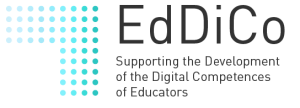Virtual Learning in Higher Education
The course was delivered by 13 teachers from 6 institutions and participated by 6 universities’ students. It consists of 6 sub-modules prepared and delivered by each sub-module expert introducing irtal leaning possibilities, opportunities and peculiarities. It is availale as free learning material with activities for learners
The course was prepared by Vytautas Magnus University (Lithuania, www.vdu.lt), Innovation Centre of University of Oviedo (Spain, www.innova.uniovi.es), Jyvaskyla University (Finland, http://www.jyu.fi), Baltic Education Technology Institute (Lithuania, www.beti.lt), Jagellonian University (Poland, (www.uj.edu.pl), University of Aveiro (Portugal, www.ua.pt).
It consists of 6 Learning Sub-modules:
- Culture models (8 hours, 2 week)
- Collaborative online groupwork (8 hours, 2 weeks)
- Information Literacy (8 hours, 2 weeks)
- Learning Strategies (8 hours, 2 weeks)
- Learning Technologies (8 hours, 2 weeks)
- E-Assessment Strategies (8 hours, 2 weeks)
LOpp goals: Enabling participants to plan and experience virtual mobility sessions by practicing video lecture participation, performing group and individual online activities, using and sharing virtual resources in multicultural virtual learning environment. Learning outcomes – By the end of the module learners will be able to :
- understand culture models and their application in education;
- apply the knowledge of culture models to solve problems caused by cultural differences in virtual mobility;
- understand the skills needed to facilitate and manage collaborative online learning;
- know different technological resources for collaborative online learning;
- analyze and evaluate information;
- synthesize and create information;
- define the technologies and standards used in distance education;
- apply learning management systems based on these standards;
- compare learning styles and learning strategies;
- identify and apply online resources in order to implement learning strategies virtually;
- design assessment strategies for virtual learning;
- use tools to support scenarios of virtual learning.
| Provided By | TeaCamp project, Vytautas Magnus University |
| Type of provider | European project |
| Provided at | online |
| Learning opportunity type | OER |
| Language | en |
| Home page | https://teacamp.vdu.lt/course/view.php?id=47 |
| Admission procedure | Open to all |
| Entry requirements note | The learning opportunity has no requirements; The requirements for the course participants were: to have a sufficient knowledge of the English language that would allow to follow English speaking classes, discuss and work colaboratively with students from other contries and write correctly in English; to have experience working with Moodle; to have some knowledge on instant messaging, social networking and social media; be willing to work colaboratively |
| Price details | Free |
| Type of credential | None |
| Contact form | nuotolines@vdu.lt |


